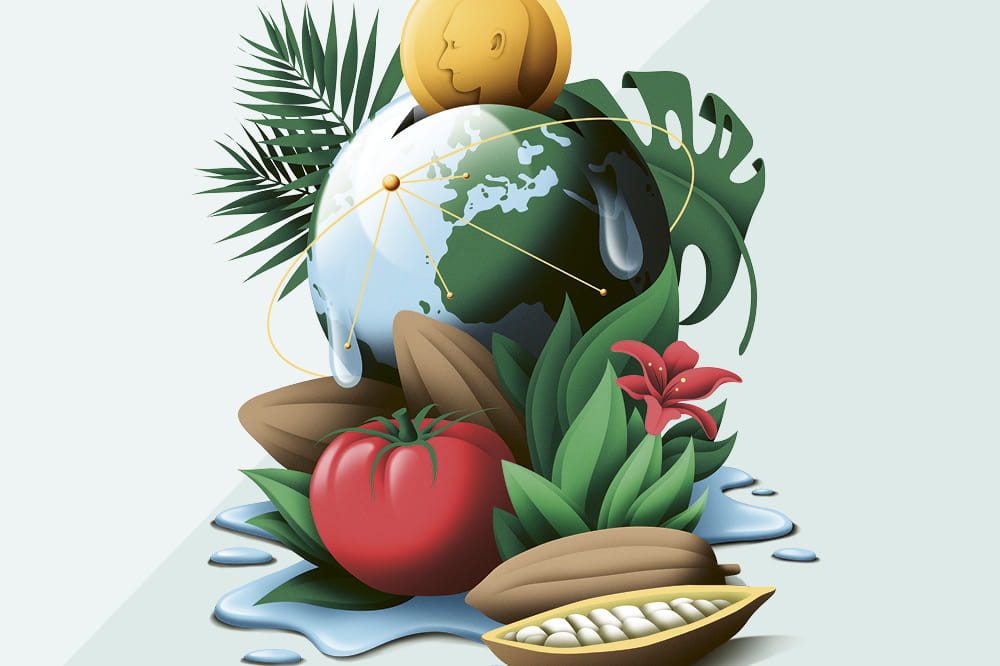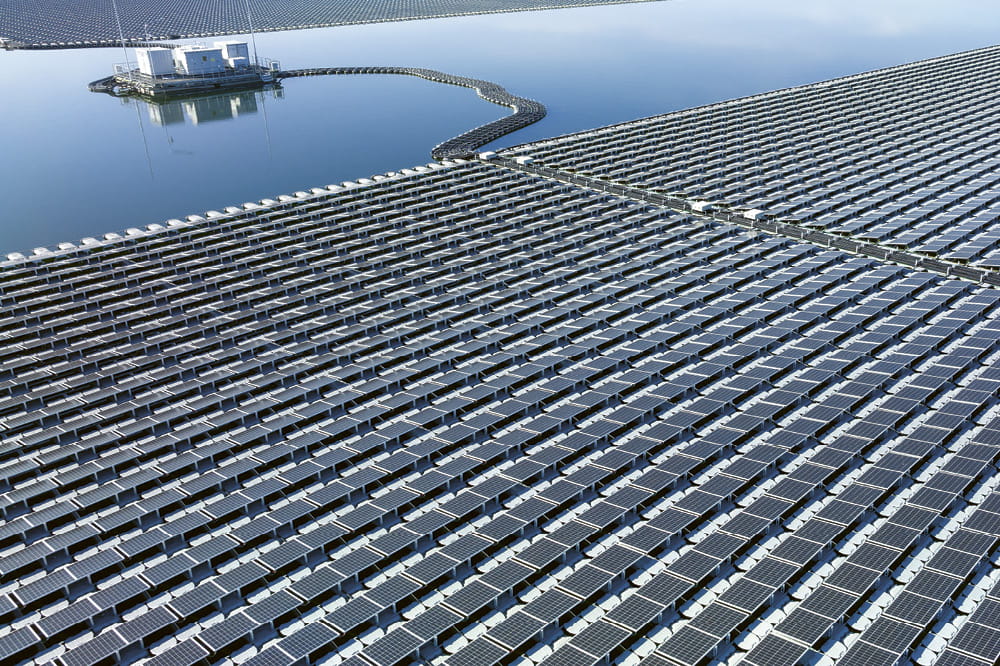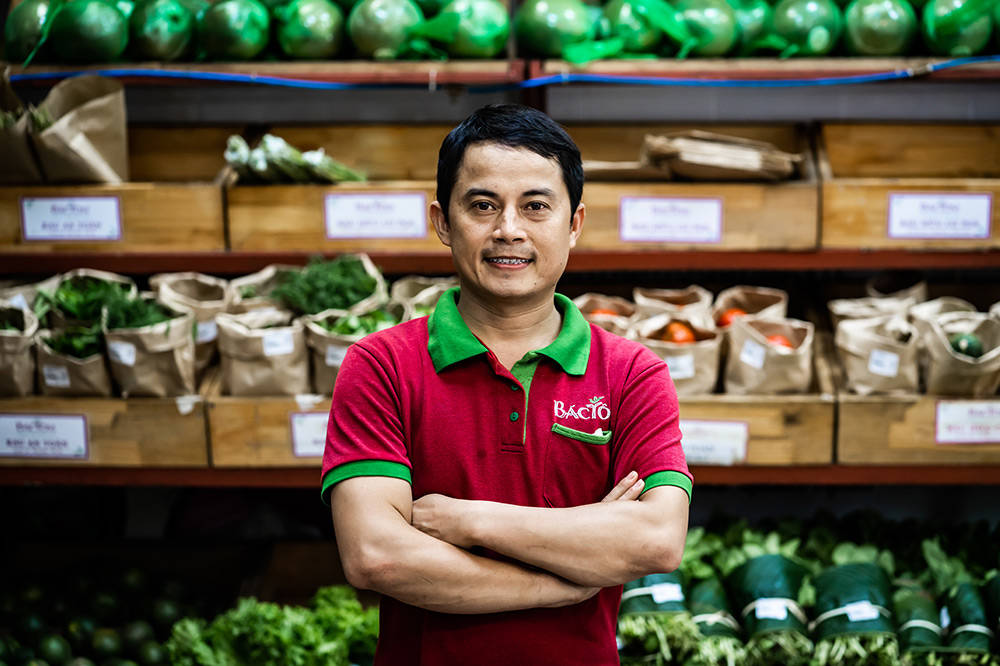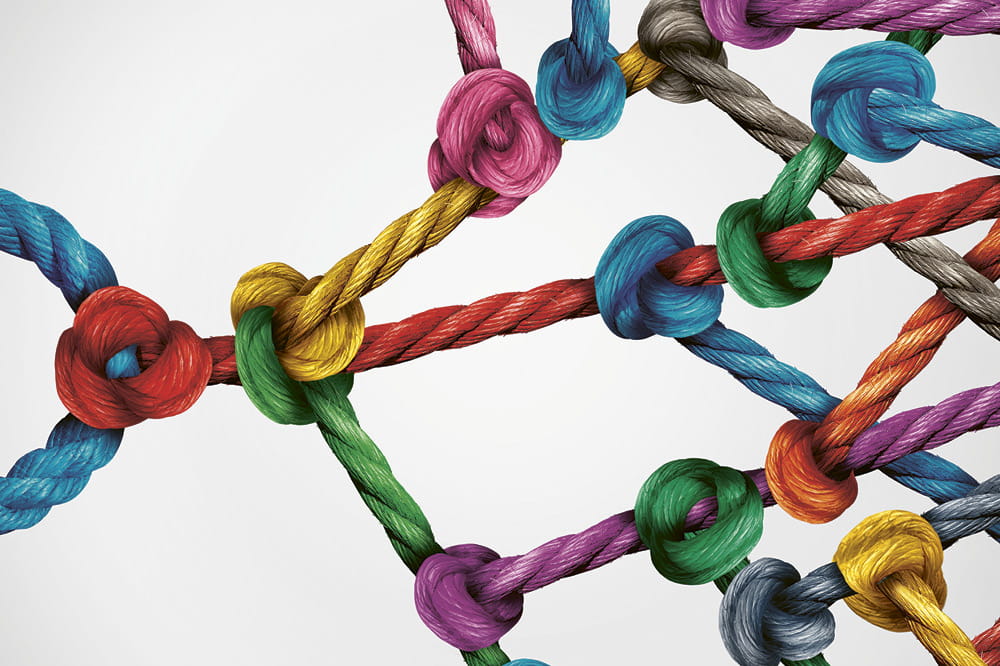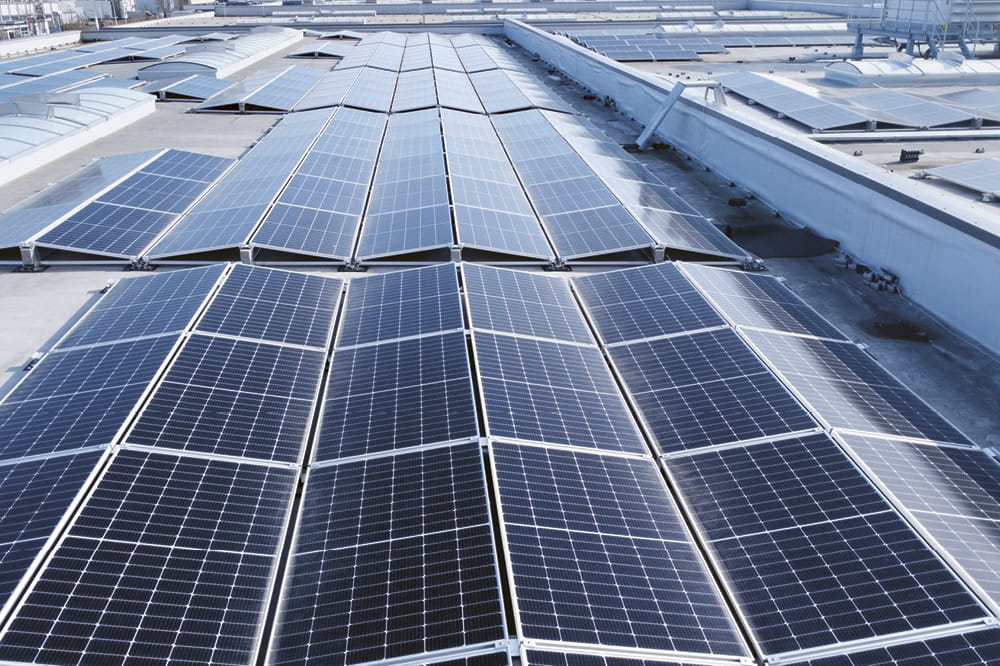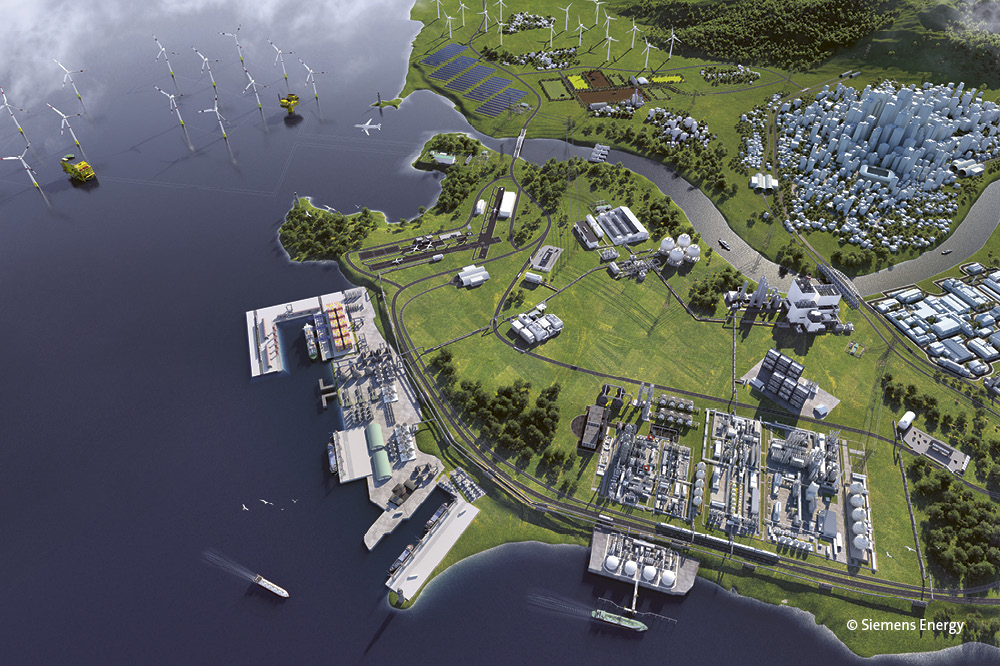Obtain news and background information about sealing technology, get in touch with innovative products – subscribe to the free e-mail newsletter.

“Globalization Is Entering Its Next Stage”
Veteran international investment and trade practitioner, Harry G. Broadman, is convinced the pandemic won’t reverse the course of globalization. An interview on how COVID-19 will alter the world’s system of network trade, business practices and cultural relationships.
Harry Broadman, is globalization a much older phenomenon than we think?
Dr. Harry G. Broadman: In part, that depends on how you define “globalization.” It isn’t new from a historical perspective. Global trade and investment in goods and services has been around for more than two centuries. And, it is constantly evolving. As a result of the pandemic, but also due to other forces—political, technological and demographic—globalization will enter a new phase. We might describe what is now occurring as Globalization 4.0. It will become more complex and more subtle at the same time.
What do you mean by that?
The global economy of the 21st century is a change from earlier phases. It is more complex because the supply chains for a number of products are both tiered and incredibly long. For even the simplest products, some may start with a component made in Brazil that is then transformed in Thailand and shipped over to China for additional modifications before they land in the European or American market as a final product. In the old days of globalization, you didn’t have this division and layering of labor and production.
We can’t get the genie back in the bottle.
As the pandemic of 2020 has so vividly revealed to us…
That’s right. We have seen the way business executives and consumers were completely caught off guard when China shut down parts of its economy and ripped supply chains apart. Much of the globalized economy is not visible at first. That’s the subtle part. Globalization has permeated our habits, even though it might not always be obvious. Our consumer behavior has changed, and so has our culture.
So we shouldn’t look at globalization purely from an economic standpoint.
Not exclusively. That is the conventional use of the term because we mainly look at products and services. But products and services will both change cultural habits. Right now, we are doing this interview over Skype, a program from the United States that has spread around the world. Technology has an impact on culture and can expand it: I am speaking from America. You are sitting in Germany. We could speak just as easily with people from Mongolia. We can see how other countries work and think, what makes them tick. I think human understanding and relationships have to grapple with these forces.
Dr. Harry G. Broadman
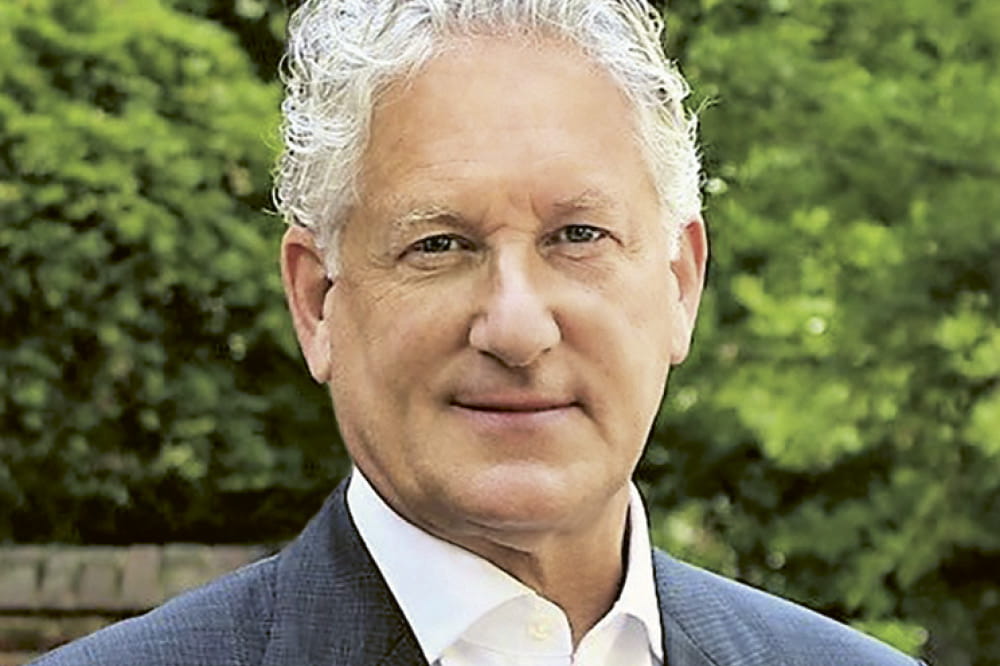
An expert in global investment and trade, antitrust, and corporate governance, Harry G. Broadman has worked in more than 85 emerging markets for 37 years: in private equity investment, PwC, the White House, the World Bank, the RAND Corporation, and Harvard University’s faculty. He is a partner at Berkeley Research Group LLC, an expert witness international dispute and business strategy firm, and on the faculty at Johns Hopkins University. He was educated at Brown University and has a doctorate in economics from the University of Michigan.
But isn’t that misleading as well? We think we are more familiar with other cultures than we actually are.
That’s correct. This is one of the side effects of globalization. It may give us a false sense of knowledge and comfort. Getting books, films or music from a country isn’t the same as visiting it. Incidentally, the reverse may be true: We can develop a mistaken feeling of mistrust because we are too ready to believe things about other countries. Or we equate a product with the population living in the country and turn up our noses because only cheap products supposedly come from a particular country. At the same time, we overlook the fact that we’re actually the ones buying such items.
Can globalization be turned back?
There are still people who think globalization is a fad. It is not. Globalization is not going to end. There has been criticism of globalization and its outgrowths in the discussions underway in the United States and Europe. The argument is that we have globalized “too much.” Especially where China is concerned, and our leaders will fashion policies to make us “decouple” from China. I know of many companies that trade with China or have invested there, and I have my doubts about the feasibility of government-induced de-coupling of business’ operations. So-called “forced” de-coupling won’t be easy. Nor may it actually make sense economically. It is myopic.
The year 2020 has tended to strengthen these ideas.
Of course, it has. The pandemic is an aspect of a globally networked world. Although the planet has seen the Plague and other diseases, COVID-19 is probably the most widespread and comprehensive pandemic in world history. It shows that we are all part of one world. It’s not surprising that some people are coming to the wrong conclusion: “See? If we didn’t have a globalized world, this pandemic wouldn’t have taken place.” But it’s a misconception that the genie can be put back in the bottle. I understand the emotional response, but it’s superficial.
How will the pandemic change our global economy?
That depends on how quickly it is contained. And how quickly we learn the correct health lessons. Nobody wants to shut the economy down, but we have learned that will be the end result if we respond too timidly beforehand. This won’t be the last pandemic that we go through. Perhaps it’s an indication that we need to cooperate all the more closely internationally on global problems.
You could say that climate change is a kind of pandemic for our ecosystem.
Do you believe that the notion of local production, that is, “localization,” will prevail?
I don’t think COVID-19 is the end of globalization. Supply chains are becoming more complex, not less. Manufacturing is—and will still be—global. Companies seek to mitigate risks. Thus, when a supply chain breaks down, this will drive them to establish even more diverse supply chains. Many experts don’t seem to grasp this.
So business managers are smarter than many a self-styled expert?
There is a distinction between an emotional response and a commercial calculation. A few months ago, U.S. President Donald Trump, by Twitter, ordered American companies to “come home.” Irrespective of whether that’s good or bad economic policy, many people don’t seem to understand how complex the web of business’ networks is today. Most people only see the end product. They don’t realize the full backstory and the intermediate steps.
It would at least be a positive development if the pandemic taught us about this, wouldn’t it?
I hope so. Politicians listen to the emotions of the voters. That’s part of their job. Right now, when voters say, “We would like more locally grown food or more locally produced goods,” you can meet their desires. But if they suddenly realize it’s more expensive, some will look at it differently. I’m not being judgmental. It’s just a striking example of why we should not make economic decisions solely based on emotions. An entrepreneur has to think in business terms. “Are there enough customers who are ready to pay the prices that I have to charge?” If that’s the case, wonderful.
But the discussions about “sustainability,” not to mention climate change, seem to have moved into the background.
Yes, and the question is: Why? It certainly has something to do with the fact that the danger of the COVID-19 pandemic is more visible and immediate, and its consequences can be seen directly. By contrast, climate change lies off in the future, its harmful effects are incremental and a solution is much more difficult. The countermeasures against this particular disease are concrete: masks, physical distancing, and hopefully a vaccine. Getting rid of greenhouse gases seems more complicated to many people, and the effect on individual countries is far more limited.
At the same time, both challenges can have a major impact on the global economy.
That’s right. You could say that climate change is a kind of pandemic afflicting our ecosystem. Global warming raises costs for companies and for people. But these costs tend to be more hidden. That’s the problem. Not much will change as long as no one feels they have been immediately and directly affected.
But there are arguably costs already.
Yes. But they are only being felt very slightly at this point, and people are ready to accept them. But the costs will rise exponentially. From this standpoint, the consequences of climate change are not really so different from those of a pandemic. In an article I published in the early 1980s, I made the case for higher oil import duties to curb demand for petroleum, the consumption of which generates hidden social costs. In many countries worldwide, and especially here in the United States, the price of gasoline does not truly reflect its full social costs.
Is addressing hidden costs an investment in the future?
If we raise the price of certain energy products today, we may be able to help reduce the effect of climate change on our children. Call it a generational contract. And a globalization contract. There are quite a number of countries— including in Europe—where, because of government tax policies, the price paid for a unit of gasoline is already comparatively much higher today than in the U.S. That’s a wise policy. As I mentioned, we all live on the same planet. We have to tackle global challenges together.
This article originally appeared in ESSENTIAL, Freudenberg Sealing Technologies’ corporate magazine that covers, trends, industries and new ideas. To read more stories like this, click here .
More Stories About Sustainability

